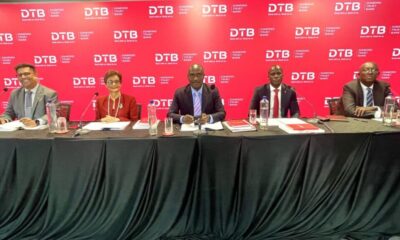Business & Money
Meet Kariuki Ngari: Standard Chartered Bank’s new CEO of Africa. What’s Next?
Kariuki Ngari’s nomination heralds a new chapter and an entire volume in the bank’s narrative of success in Africa. It signifies a renewed sense of purpose, a reaffirmation of values, and a shared commitment to shaping a brighter future for the continent’s economies and communities.
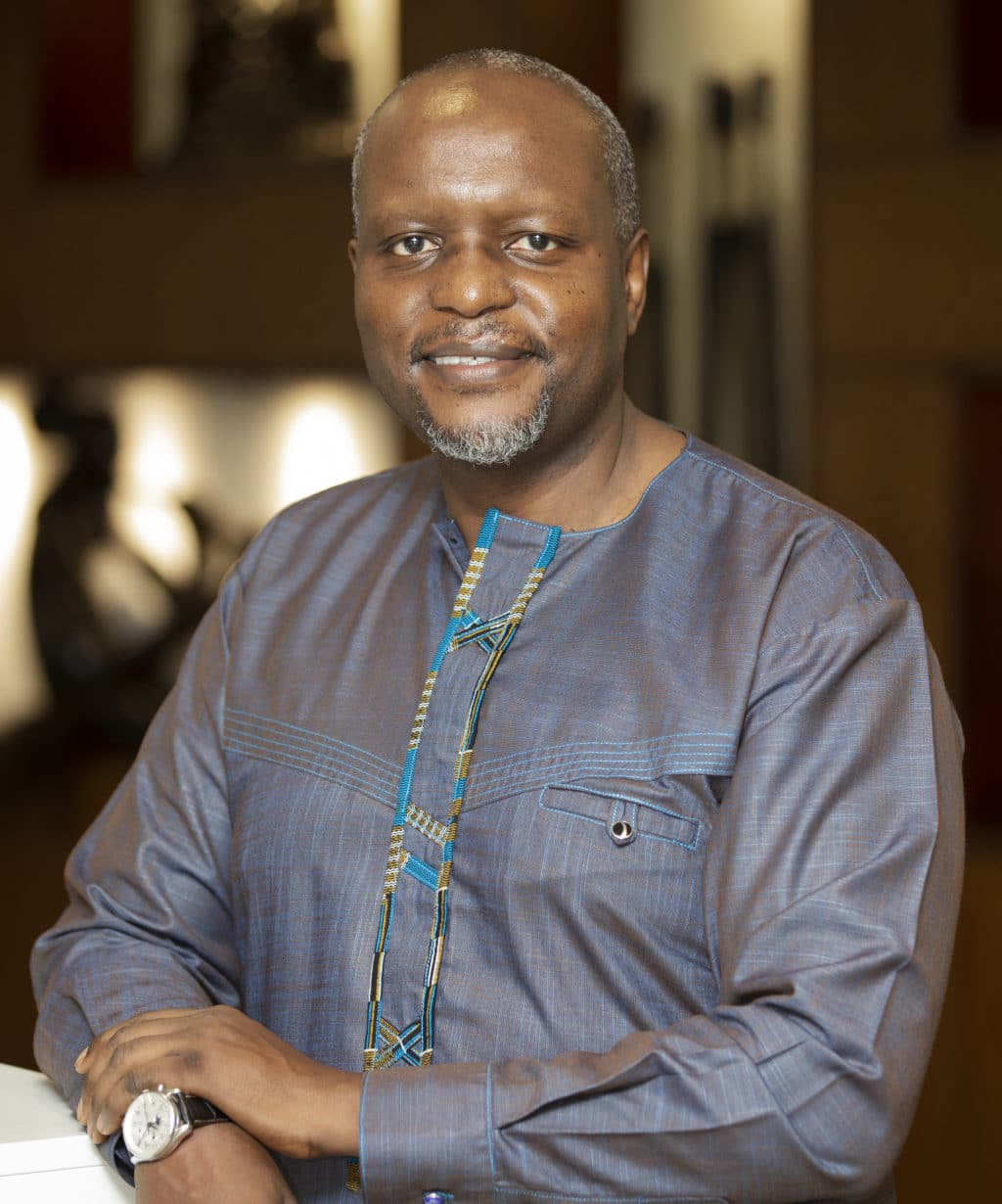
: The nomination speaks volumes about the bank’s commitment to its African operations and its strategic vision for growth on the continent.
: Kariuki’s vast experience and market insight make him a catalyst for growth. With his strategic vision, Standard Chartered can seize opportunities, expand, and provide tailored financial solutions
By Charles Wachira
In a significant move within the banking sector, Kariuki Ngari ascended to CEO Africa at Standard Chartered Bank on April 3, marking a pivotal moment in his illustrious career. As he steps into this new role, Ngari faces a landscape rife with challenges but brimming with opportunities. He is poised to leverage his expertise and track record to propel the bank’s growth trajectory across Africa.
Challenges and Opportunities:
Navigating Regulatory Complexity: One of Kariuki’s foremost challenges will be navigating the diverse regulatory environments across the African continent. With each country presenting unique regulations and compliance requirements, Ngari must adopt a nuanced approach to ensure Standard Chartered Bank’s operations remain compliant while driving growth.
Adapting to Market Dynamics: African markets are diverse and constantly changing. Rapid shifts in consumer preferences, technological advancements, and intense competition characterise them. Kariuki must stay agile and adaptive, seizing opportunities for innovation and market expansion while mitigating risks associated with changing market dynamics.
Fostering Financial Inclusion: Africa offers significant opportunities for financial inclusion, as a large portion of the population remains underserved by traditional banking services. Kariuki has the opportunity to drive initiatives that promote financial literacy, expand access to banking services, and foster inclusive economic growth across the continent.
Previous Achievements and Experience:
Before assuming the role of CEO of Africa, Kariuki served in various leadership positions within Standard Chartered Bank, demonstrating his exceptional leadership capabilities and strategic vision. Some of his notable achievements include:
Driving Digital Transformation: Kariuki played a pivotal role in driving Standard Chartered Bank’s digital transformation agenda, spearheading initiatives to enhance the bank’s digital capabilities and customer experience. Under his leadership, the bank successfully launched innovative digital banking solutions tailored to the African market, driving customer engagement and retention.
Expanding Market Presence: Kariuk has a proven track record of expanding Standard Chartered Bank’s market presence across Africa, identifying growth opportunities, and forging strategic partnerships to penetrate new markets and strengthen the bank’s foothold in existing ones.
Promoting Sustainable Finance: Kariuki is committed to promoting sustainable finance and responsible banking practices. He has championed initiatives focused on environmental, social, and governance (ESG) principles, integrating sustainability into the bank’s business strategy and operations.
Expectations in the New Role:
As CEO of Africa, stakeholders expect Kariuki to bring his wealth of experience, strategic acumen, and unwavering commitment to driving Standard Chartered Bank’s growth agenda in Africa. Key expectations include:
Strategic Vision: Kariuki will continue articulating a clear vision for Standard Chartered Bank’s African operations, leveraging market insights and industry trends to identify growth opportunities and drive sustainable value creation.
Innovation and Digitalization: Ngari will prioritise innovation and digitalisation, harnessing the power of technology to enhance the bank’s offerings, streamline operations, and deliver superior customer experiences.
Stakeholder Engagement: Ngari will intensely focus on stakeholder engagement, fostering relationships with clients, regulators, shareholders, and communities to ensure alignment with the bank’s objectives and values.
The nomination of Kariuki to the position of CEO of Standard Chartered Africa speaks volumes about the bank’s commitment to its African operations and its strategic vision for growth on the continent. Here are a few critical points that the nomination signifies:
Recognition of Talent: Standard Chartered Bank’s decision to appoint Kariuki Ngari as CEO of Africa reflects the bank’s recognition of his exceptional leadership qualities, strategic acumen, and track record of success within the organisation. It indicates that the bank values talent from within its ranks and is committed to nurturing and promoting internal talent to key leadership positions.
Focus on the African Market: By appointing a CEO specifically for the African region, Standard Chartered Bank underscores the importance of the African market in its global strategy. It signifies the bank’s commitment to unlocking the vast opportunities presented by the African continent and leveraging its potential for growth and expansion.
Continuity and Stability: Kariuki’s nomination brings continuity and stability to Standard Chartered Bank’s African operations. With his deep understanding of market dynamics, extensive experience within the organisation, and proven track record of success, Ngari is well-positioned to provide steady leadership and drive the bank’s growth agenda in Africa.
Emphasis on Local Leadership: The appointment of Kariuki, who is of Kenyan nationality, also highlights the importance of local leadership and expertise in driving success in the African market. It demonstrates Standard Chartered Bank’s commitment to fostering a diverse and inclusive leadership culture that reflects the communities and markets it serves.
Strategic Direction: Kariuki’s nomination signifies the bank’s strategic direction and priorities for its African operations. It suggests a focus on driving innovation, digital transformation, and sustainable growth in key markets across the continent, with Ngari leading the charge in executing the bank’s vision and objectives in Africa.
Kariuki’s appointment as CEO of Africa at Standard Chartered Bank marks a significant milestone in the institution’s journey towards consolidating its position as a premier financial institution on the African continent. With an unwavering focus on excellence, strategic foresight, and a proven track record of leadership, Kariuki brings a wealth of experience and expertise that positions him as a catalyst for transformative growth.
His elevation underscores the bank’s confidence in his abilities and its steadfast commitment to fostering homegrown talent and leveraging local expertise to drive success in key markets. Kariuki’s appointment represents more than just a change in leadership; it symbolises a new era of innovation, resilience, and adaptability in navigating the intricacies of the African financial landscape.
In the face of evolving market dynamics, regulatory complexities, and competitive pressures, Kariuki’s leadership will be instrumental in steering Standard Chartered Bank towards sustainable growth and value creation. His strategic vision, coupled with a deep understanding of the African market, will enable the bank to capitalise on emerging opportunities, expand its footprint, and deliver superior financial solutions tailored to the diverse needs of its customers.
Moreover, Kariuki’s appointment reinforces Standard Chartered Bank’s commitment to driving positive impact and fostering inclusive growth across the continent. Kariuki is poised to make a meaningful difference in millions of individuals and businesses across Africa by championing initiatives promoting financial inclusion, sustainability, and responsible banking practices.
In essence, Kariuki’s nomination heralds not just a new chapter but an entire volume in the bank’s narrative of success in Africa. It signifies a renewed sense of purpose, a reaffirmation of values, and a shared commitment to shaping a brighter future for the continent’s economies and communities. As he assumes the mantle of leadership, Ngari stands at the forefront of Standard Chartered Bank’s journey towards becoming the partner of choice for businesses, investors, and individuals alike, propelling Africa towards a future of prosperity and opportunity.
Keywords:Kariuki Ngari:Standard Chartered Bank:CEO Africa:Financial Inclusion:Digital Transformation
Business & Money
Ethiopia Attracts $53.5 Million in Q1 Investments, Creates 8,700 Jobs

: Ethiopia attracts $53.5M in Q1 investments, creating 8,700 jobs. Growth driven
by reforms, with a focus on service and manufacturing sectors.
The Addis Ababa Investment Commission (AAIC) announced a promising start to the
2023/24 fiscal year, with 612 investors registering a combined capital of Birr 2.93 billion
($53.5 million) in the first quarter.
This reflects a 13% growth compared to the same period last year, signalling sustained
investor confidence despite economic challenges.
Speaking at a press briefing on November 30, AAIC’s Director of Communication,
Meseret Woldemariam, credited the growth to policy reforms and enhanced investor
facilitation.
“Our efforts to streamline investment processes and resolve bottlenecks are yielding
results. We remain committed to ensuring investors thrive in Addis Ababa,” she said.
SECTORIAL CONTRIBUTIONS
The majority of the newly licensed investors are in the service and manufacturing
sectors. The service sector includes hotels, tourism, and IT ventures, while the manufacturing
investments span electrical products, steel, wood, and textiles.
These investments have generated 8,707 jobs, comprising 770 permanent and 490
temporary positions created by newly licensed entities.
The AAIC has also initiated field monitoring visits to ensure operational readiness. “Our
team works closely with new investors to address challenges promptly, enabling faster
project rollout,” Meseret added.
CHALLENGES AND REFORMS
Investors continue to face hurdles such as foreign currency shortages and workspace
availability. However, the commission highlighted progress due to macroeconomic reforms,
particularly improving foreign currency access.
“We are actively collaborating with the Mayor’s office to address workspace issues
through professional support in rental solutions and operational guidance,” Meseret
explained.
Recent reforms in the National Bank of Ethiopia’s foreign exchange policy have also
been pivotal. In October, the central bank announced a 30% increase in forex allocation to priority sectors, a move welcomed by stakeholders.
EXPANSION PLANS AND PROJECTIONS
The AAIC aims to capitalise on the momentum, targeting Birr 15 billion ($274 million) in
investments by the end of the fiscal year. A new digital investment portal, launched in November, promises to reduce registration times by 40% and improve transparency.
“We are confident these initiatives will not only attract more investors but also deepen
the trust of existing ones,” Meseret concluded.
INVESTOR SENTIMENT
Prominent business leader Ahmed Yusuf, who recently launched a $3 million IT hub in
Addis Ababa, praised the commission’s efforts.
“The improvements in investor services and forex allocation are encouraging. We hope
to see more streamlined processes for licensing and operations,” he remarked.
As Ethiopia seeks to position itself as a regional investment hub, sustained efforts in
addressing investor concerns and enhancing infrastructure will be critical.
Business & Money
Ethiopia Eyes December Debt Restructuring After IMF Review
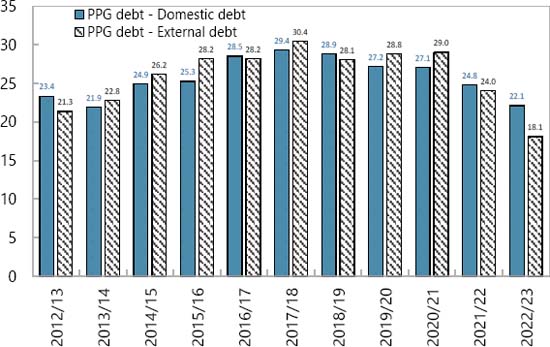
: Ethiopia’s December IMF review may unlock long-awaited debt restructuring,
crucial for economic reforms and stalled projects like the Koysha Hydroelectric
Dam.
Ethiopia’s much-anticipated debt restructuring prospects could gain clarity this
December, as the country awaits the second review under its four-year International
Monetary Fund (IMF) program.
The Extended Credit Facility (ECF), launched in August 2023, remains central to
Ethiopia’s economic reform and debt relief efforts.
Progress Toward Debt Treatment
Last week, Ethiopian authorities reached a staff-level agreement with the IMF tied to the
second review. A comprehensive report on this review is set for release in December, a month many stakeholders, including the National Bank of Ethiopia (NBE), view as pivotal for
advancing debt treatment plans.
“Debt restructuring stands at the centre of our reform agenda. With the report’s release,
we expect rescheduling talks to gain momentum,” said Habtamu Workneh, Director of
External Economic Analysis & International Relations at the NBE.
He added that discussions are focusing primarily on extending maturity dates for Ethiopia’s debts.
IMF Support and Engagements with Creditors
The IMF has provided Ethiopia with USD 2.5 billion under its current fiscal program,
offering critical support to the country’s macroeconomic stabilisation efforts.
In parallel, Ethiopian authorities have engaged with Eurobond holders and the Official
Creditors Committee (OCC).
A debt restructuring proposal was submitted to Eurobond holders in July 2024, following
key discussions in December 2023 and May 2024.
Additionally, a global investor update held on October 1, 2024, highlighted the nation’s
ongoing economic challenges and progress in creditor negotiations.
Shifting Debt Landscape
The government has reported improvements in its debt profile. Planning and Development Minister Fitsum Assefa (PhD) announced that Ethiopia had ceased relying on commercial loans and direct borrowing from the central bank.
She noted a significant drop in the external debt-to-GDP ratio to 13.7 per cent, though
the IMF’s Debt Sustainability Analysis, published in July 2024, pegged the ratio at 18
per cent as of June 2023.
External debt accounts for 45 per cent of Ethiopia’s total public and publicly guaranteed
debt, the report stated.
Financing Challenges Persist
Despite these reforms, Ethiopia’s financing challenges remain acute.
The government is seeking nearly USD 1 billion to complete the Koysha Hydroelectric
Dam project, which has stalled at two-thirds completion due to funding shortfalls.
The project is a critical component of Ethiopia’s development strategy, but its delays
underscore the broader fiscal pressures the country faces.
Expert Views on Economic Outlook
While Ethiopian officials are optimistic about the December review as a turning point,
analysts caution that real progress hinges on creditor consensus and the government’s
ability to implement reforms.
Critics have also raised concerns about inflated GDP growth figures, which they argue
may distort Ethiopia’s true debt sustainability.
Looking Ahead
The IMF review, coupled with Ethiopia’s active engagement with creditors, could mark a
a significant step forward in its quest for debt relief.
December will likely be a defining month for the country’s economic future, with broader
implications for its ability to attract investment and complete critical infrastructure
projects.
Business & Money
KCB Group Surpasses Equity with US$ 342.31 Million Nine-Month Profit
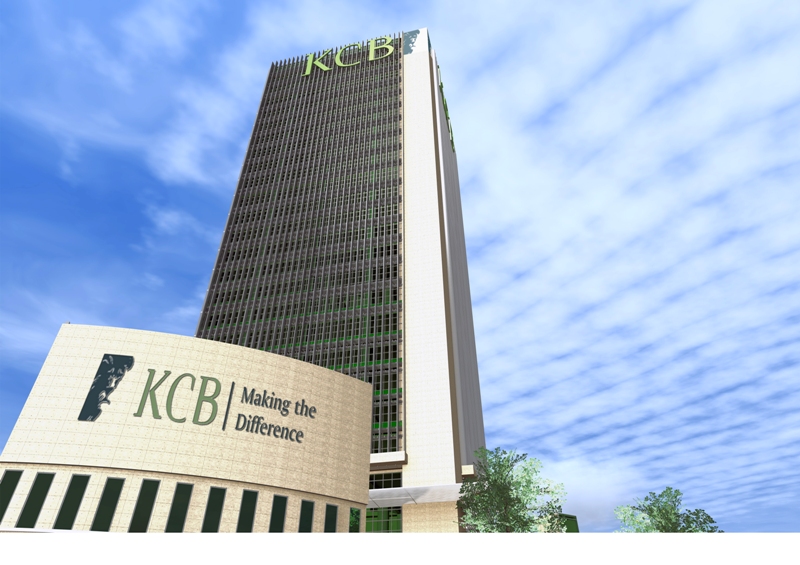
: KCB Group reports Sh44.5B ( US$ 342.31) nine-month profit, outpacing
Equity Bank. Learn about its 49% growth, challenges, and stock performance this
year.
KCB Group Plc has outperformed Equity Bank to cement its position as Kenya’s leading
lender, posting a net profit of Sh44.5 billion for the nine months ending September
This represents a 49% year-on-year growth, surpassing Equity Bank’s Sh37.5
billion profit during the same period.
Profit Growth Driven by Core Business Performance
The remarkable profit growth was fueled by higher earnings from both interest and non-
interest income streams. KCB’s diverse revenue base has been pivotal in maintaining
its dominance in the competitive banking sector.
Non-Performing Loans a Key Concern
Despite the impressive profit growth, KCB’s non-performing loan (NPL) ratio rose to
18.5%, compared to 16.5% last year. This increase highlights persistent challenges in
managing credit risk, with Chief Financial Officer Lawrence Kimathi acknowledging it as
a “pain point” for the bank.
KCB Stock Outshines Peers on NSE
KCB’s strong financial performance has translated into exceptional stock market results.
The bank’s stock has risen 78.8% year-to-date, making it the best-performing banking
stock on the Nairobi Securities Exchange (NSE).
Plans to Sell National Bank of Kenya
Earlier this year, KCB announced plans to sell its struggling subsidiary, National Bank of
Kenya (NBK), to Nigeria’s Access Bank. While Nigerian regulators have approved the
deal, it is still awaiting clearance from Kenya’s Central Bank. The sale aims to
streamline KCB’s operations and address losses at NBK.
CEO Paul Russo Optimistic About Year-End Performance
“The journey has not been without its hurdles, but our ability to walk alongside our
customers has driven our success,” said KCB CEO Paul Russo. He expressed
confidence in closing the year on a high note, leveraging improving economic conditions
across the region.
Key Figures at a Glance
● Net Profit: Sh44.5 billion (+49%)
● Non-Performing Loan Ratio: 18.5% (up from 16.5%)
● Stock Performance: +78.8% year-to-date
KCB’s strong performance underscores its resilience in navigating challenges and its
commitment to sustaining growth in Kenya’s banking sector.
-

 Politics5 months ago
Politics5 months agoFred Okengo Matiang’i vs. President William Ruto: A 2027 Election Showdown
-

 Business & Money10 months ago
Business & Money10 months agoEquity Group Announces Kshs 15.1 Billion Dividend Amid Strong Performance
-

 Politics4 months ago
Politics4 months agoIchung’wah Faces Mt. Kenya Backlash Over Gachagua Impeachment Support
-

 Politics6 months ago
Politics6 months agoPresident Ruto’s Bold Cabinet Dismissal Sparks Hope for Change
-

 Politics7 months ago
Politics7 months agoPresident Ruto’s Lavish Spending Amid Kenya’s Economic Struggles Sparks Outrage
-

 Politics6 months ago
Politics6 months agoJohn Mbadi Takes Over Kenya’s Treasury: Challenges Ahead
-

 Politics7 months ago
Politics7 months agoKenya Grapples with Investor Confidence Crisis Amid Tax Protest Fallout
-
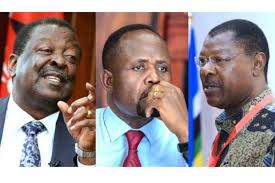
 Politics8 months ago
Politics8 months agoGovernor Natembeya’s Rise: Outshining Luhya Leaders with Youth Appeal







